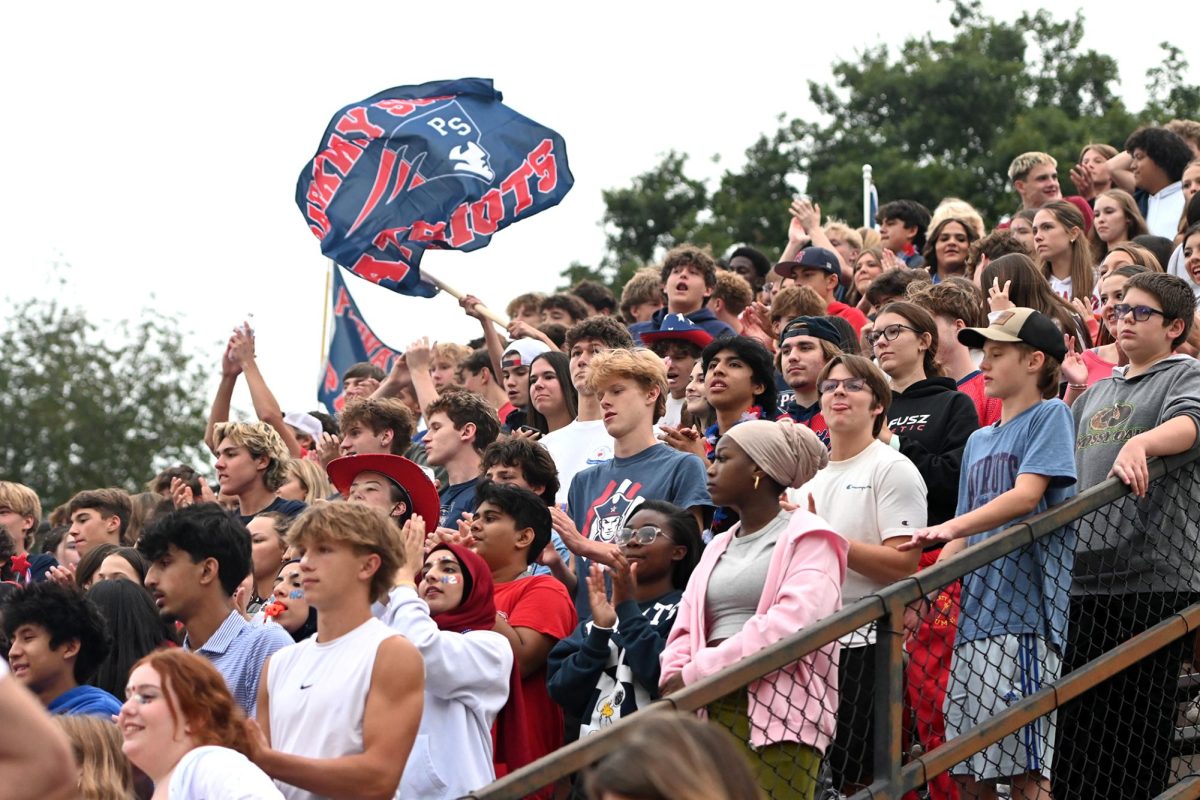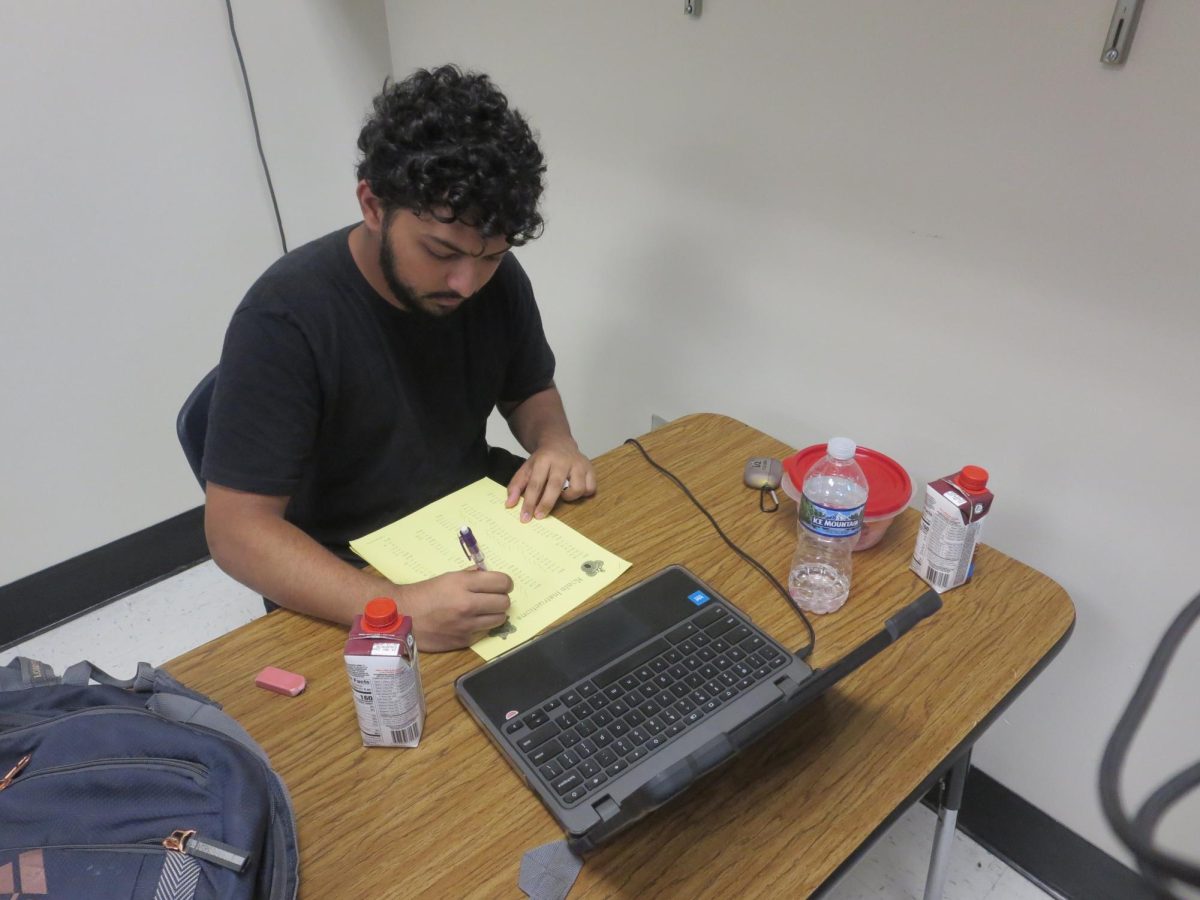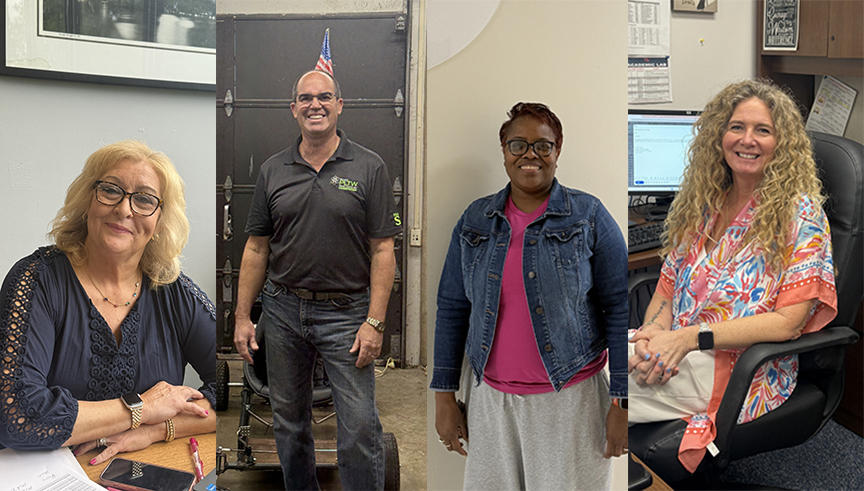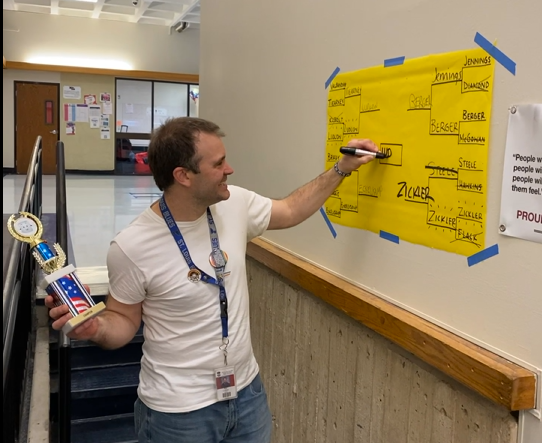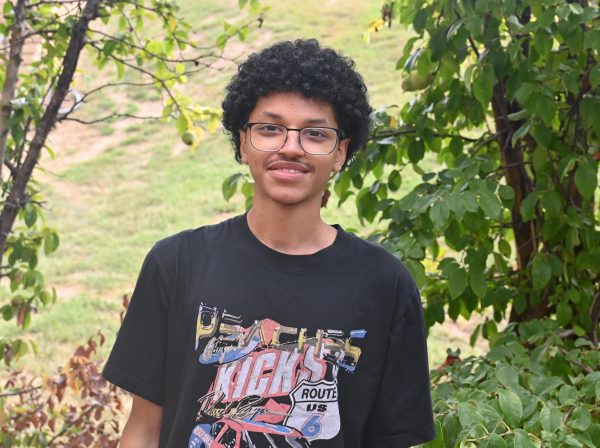The phone ban may not be going as badly as students and teachers thought…
The overall number of phones taken this school year due to the new Missouri law isn’t as many as people expected, according to Principals.
“There’s been between 10-15 phones taken. I personally have only taken 1 from a senior,” Assistant Principal Eric Wilhelm said.
Wilhelm believes that the phone ban has been going well for students’ device usage in school, but still disagrees on the full scope of the law.
“It hasn’t been much of an issue as people thought it might be. I don’t know that I agree with it, and I’d love for the state to change its mind,” Wilhelm said.
The district had developed its own phone policy, but the state government overturned it. The district’s policy would be that we couldn’t use our phones during class time, but we could during passing periods and lunch time. However, the state law says that phones cannot be used at all from the morning bell up until dismissal.
Some students claim that they have the same amount of focus this year without their phones as when they had them. In fact, some say that classes have become more disruptive when work is complete, because they have nothing to do.
“There was a huge oversight in the consequences of the law. In all of my classes, I’ve seen more kids causing problems because they have nothing to do, whereas last year, the only issue was them being on their phones,” senior Ceasar Morales said.
Students like senior Cole Hillin suggest that the phone ban is having no positive effect on productivity or focus in class.
“No. It hasn’t changed anything for the better; I still am as attentive as I was in class. But any time there’s free time or passing periods, I’m not allowed on my phone, which I think is pointless,” Hillin said.
Wilhelm believes that states shouldn’t interfere with decisions schools should be making on their own, and leaves a compelling argument.
“The state government is interfering with decisions the school should be making, because I personally don’t think that students having phones at lunch or passing periods is a problem. I feel like the schools should have their say rather than the government of the state,” Wilhelm said.
And though the phone ban has been going well from a standpoint of usage, it still makes some classes more difficult. Classes like Forensic Science and Convergence Journalism used to depend on cell phones for daily tasks.
“It makes certain things challenging, but we’re working around it. For instance, my Forensics Science class used to be able to use phones during their investigations, now we’re using digital cameras,” Jennifer Berger, Forensic Science teacher, said.
Hillin says that the processes in Forensics are more difficult with the policy.
“Yeah, right now I’m having to go through this weird process of putting an SD card into my computer for photo evidence, but it would be so much easier if I could just use my phone,” he said.
Morales claims that taking phones away is a harsh penalty
“I think taking a student’s phone away for weeks after multiple offenses is definitely a little harsh, because to them it might seem unfair. They should definitely do detentions instead,” he said.
Berger claims that students in class would be on their phones way more, not paying any attention to the lesson, so she believes the phone ban was a good idea.
“About two years ago, most of the science teachers were locking kids’ phones up in drawers, and it’s been amazing, because students would just sit there on their phones while we were trying to teach. When I would take phones from students, they would get a lot of notifications, which is distracting,” she said.
Though few students and teachers are in disagreement with the law, one student in particular, junior Caroline Nozaki, finds the phone ban to be a positive influence on students.
“I think it has its benefits, because it’s definitely helped kids focus. I feel some kids feel disconnected from their friends and family, but it’s good overall,” she said.
Though in agreement with the phone ban policy, Nozaki still believes that Parkway had a better policy than the government.
“I think they should definitely let us have it during lunch, maybe not during passing period, because that’ll be too much traffic. But I think lunch would be a good exception,” she said.


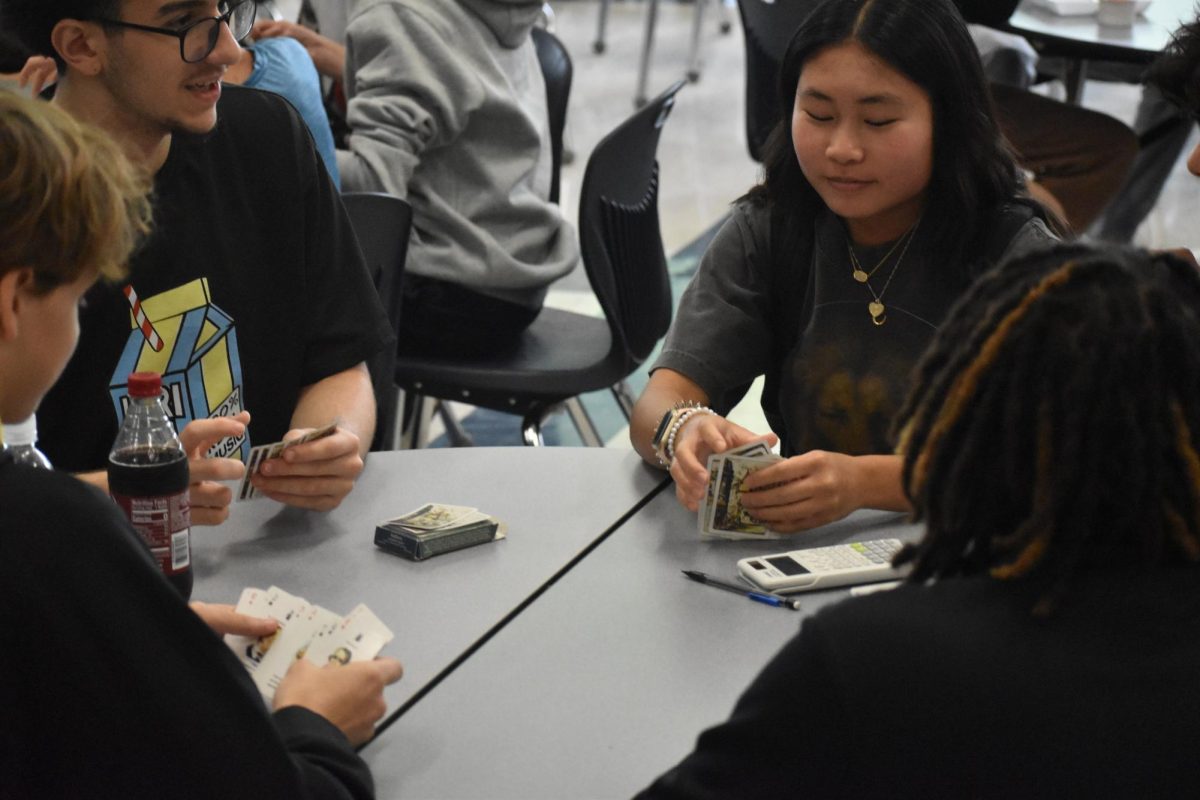
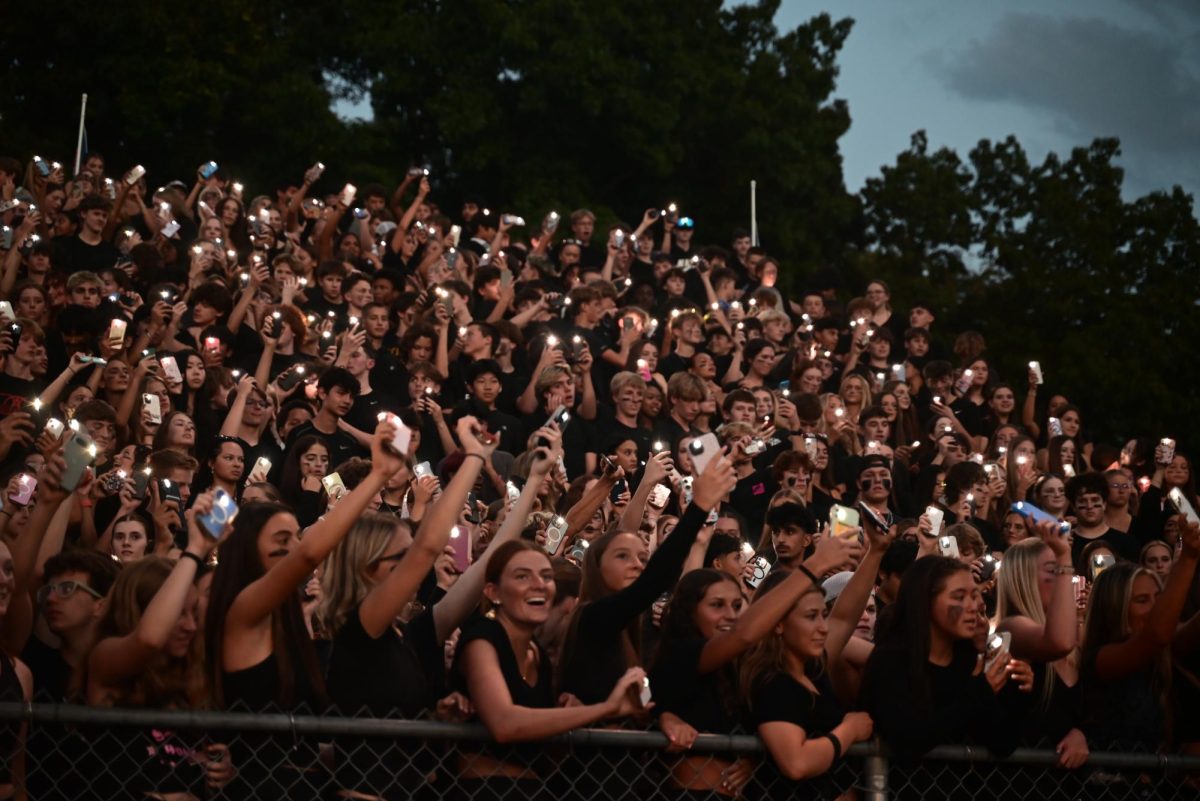

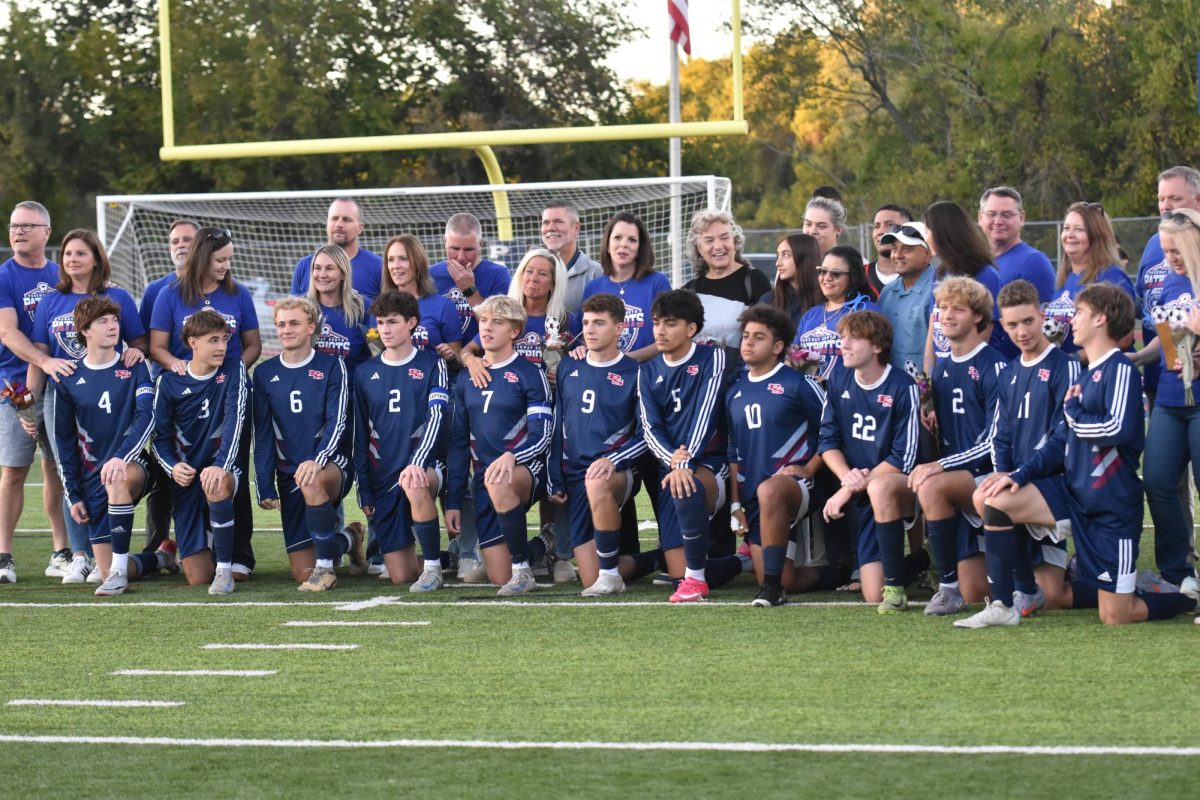
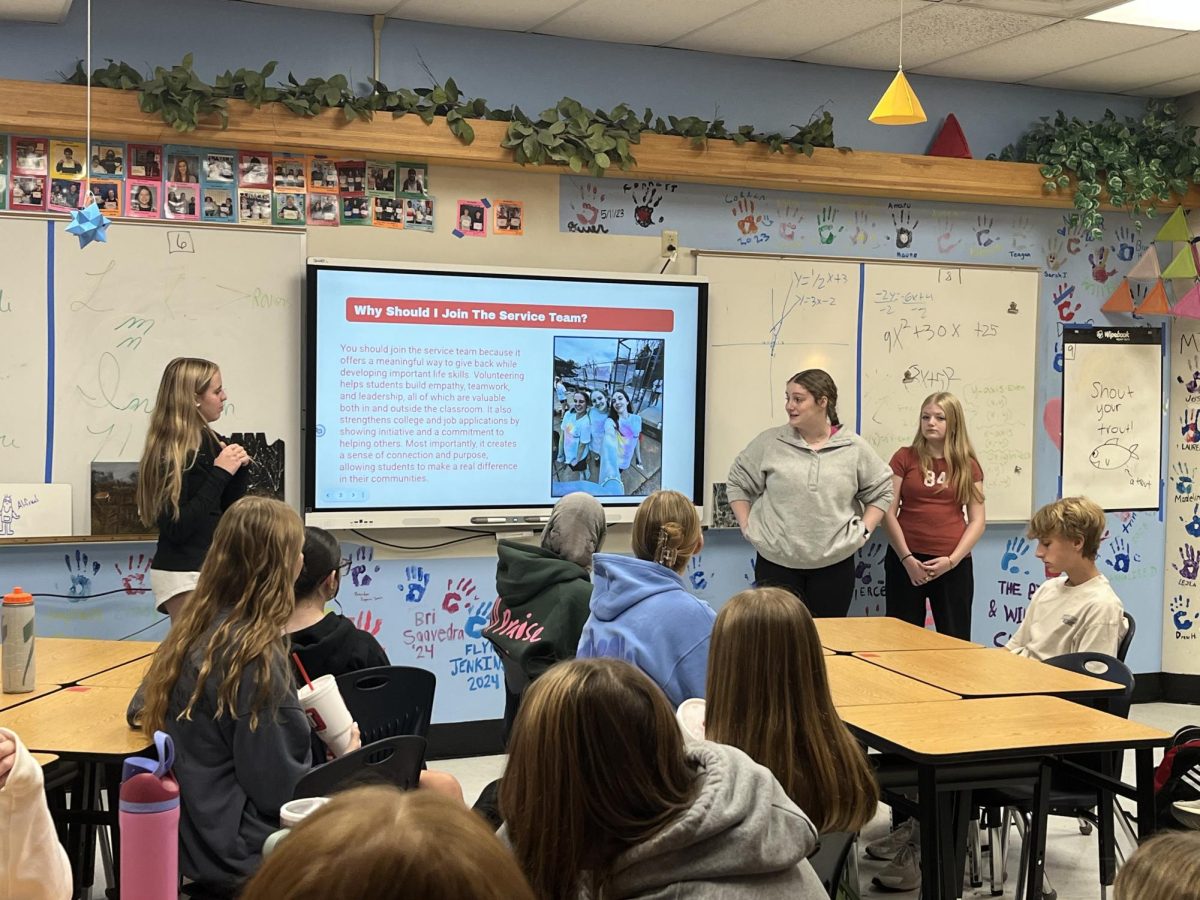
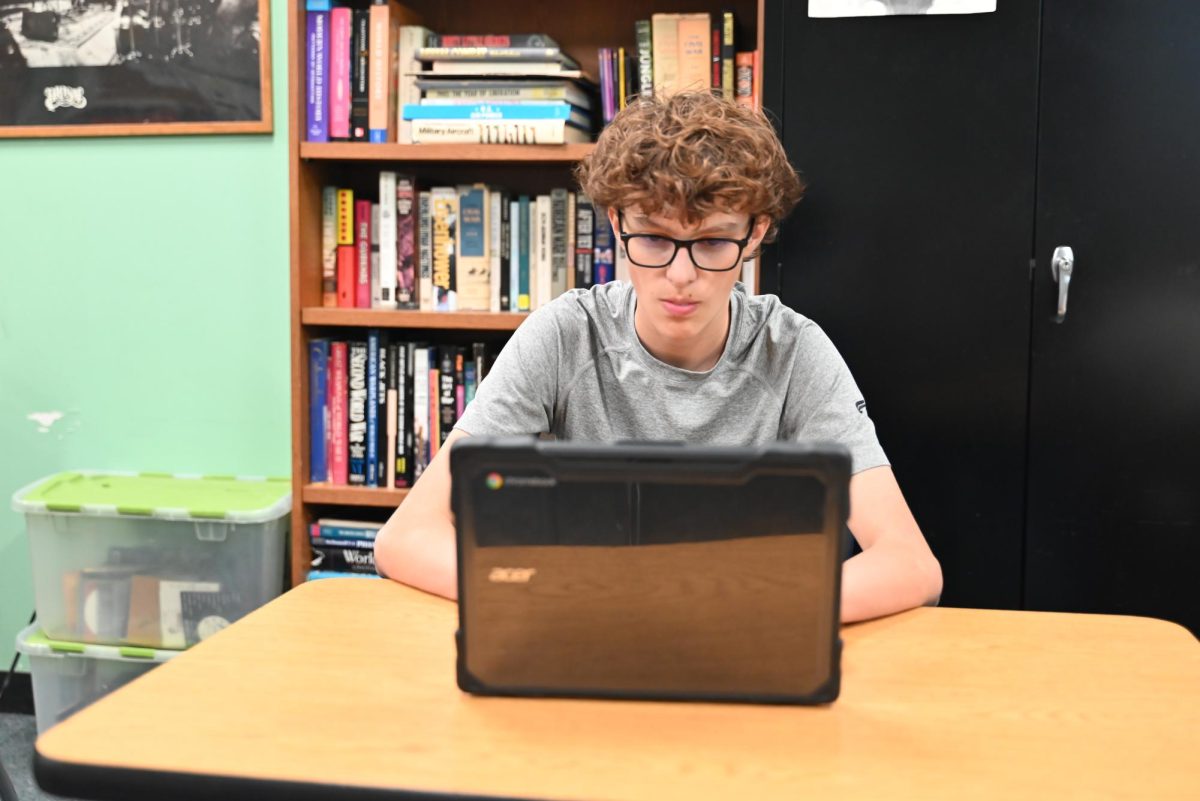

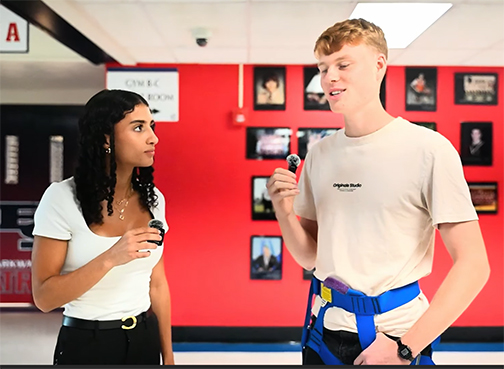

![With her mom and sister cheering her, senior Maiyah Syed gets recognized on Senior Night for Color Guard, Oct. 10. "It felt pretty good [to be recognized]. I thought it was nice to have all my accomplishments laid out [by the announcer.] [I'm really going to miss] the evening practices and the bonding with the team over everything," Syed said.](https://psouthtreaty.com/wp-content/uploads/2025/10/emilypiccropped-Gavin-Brady-935x1200.jpg)


